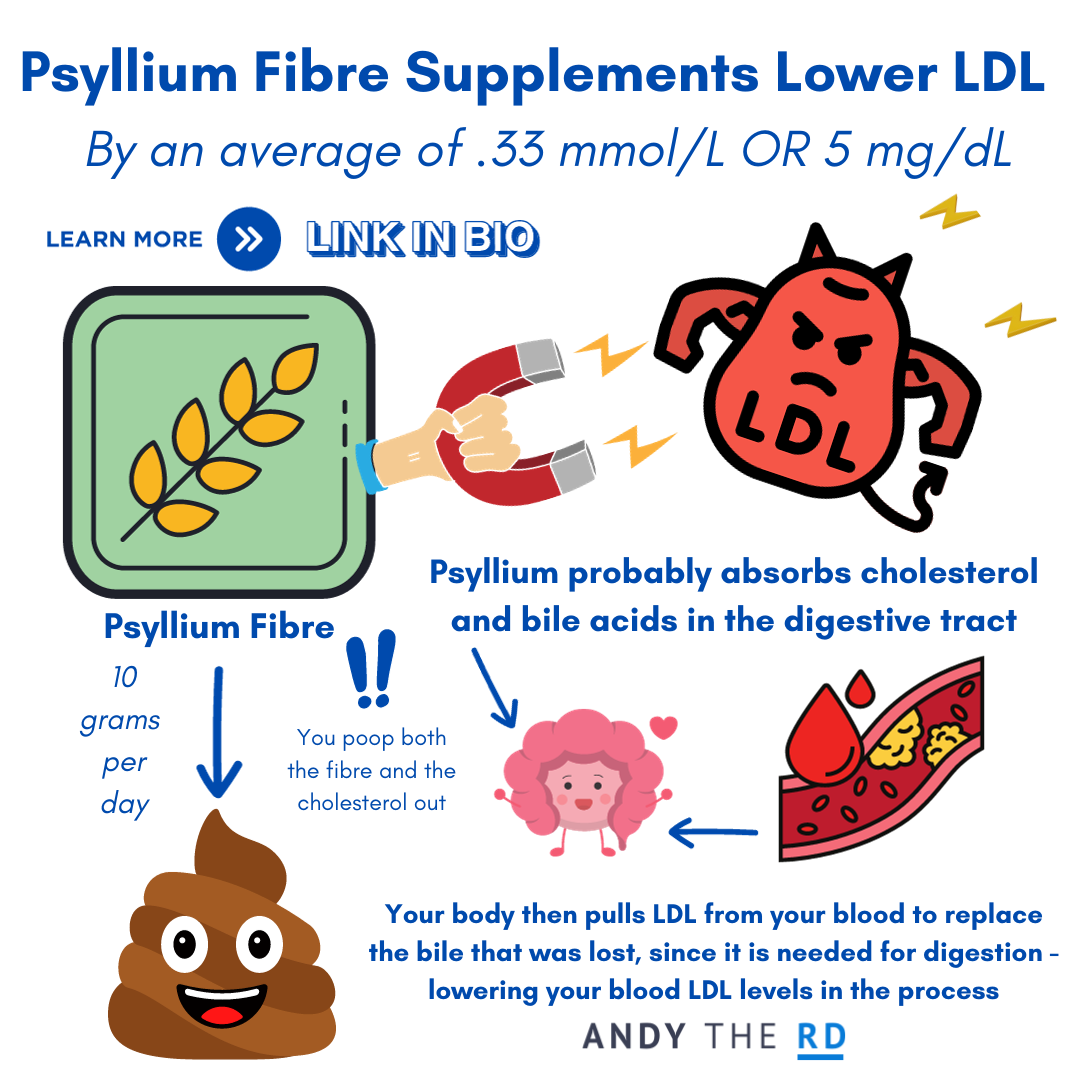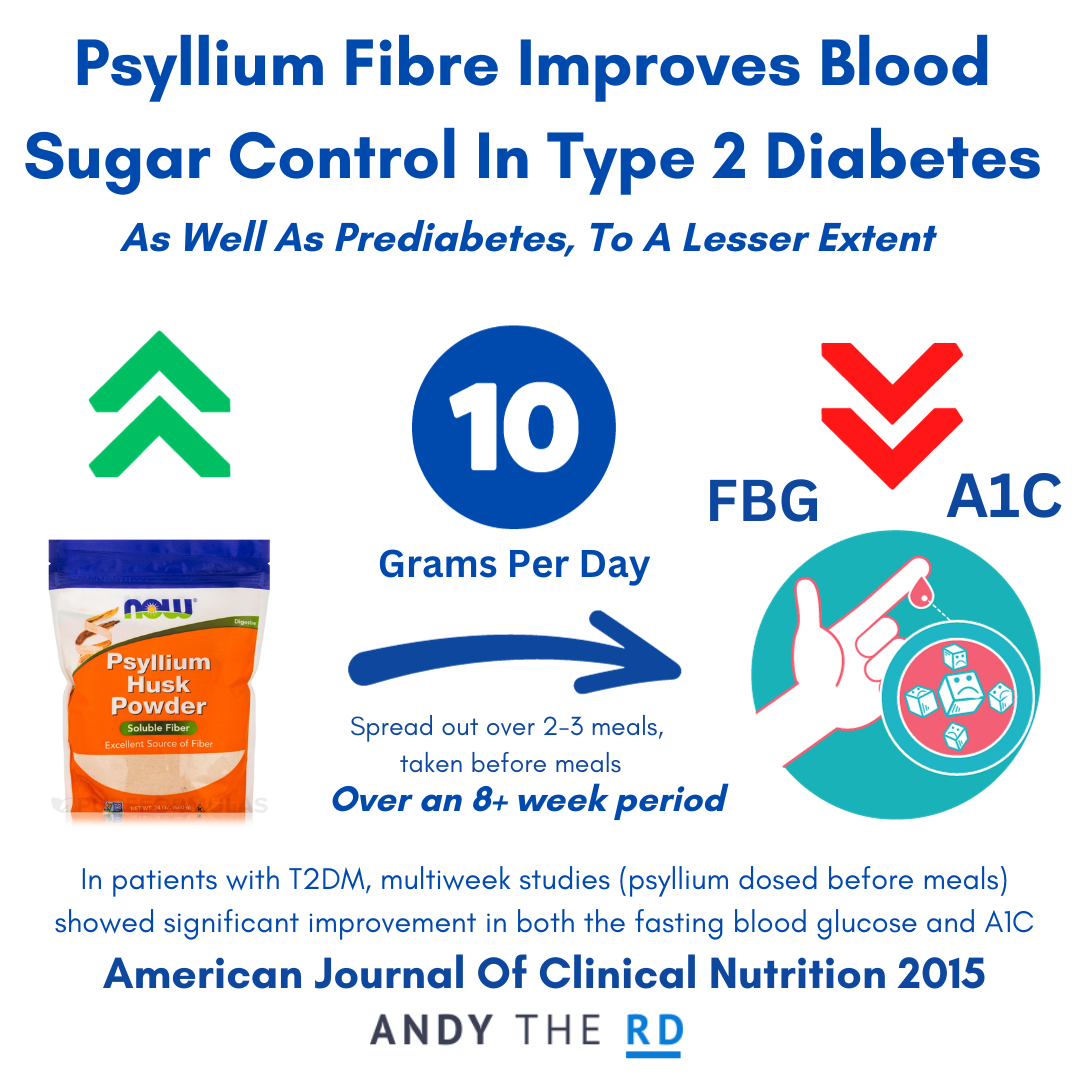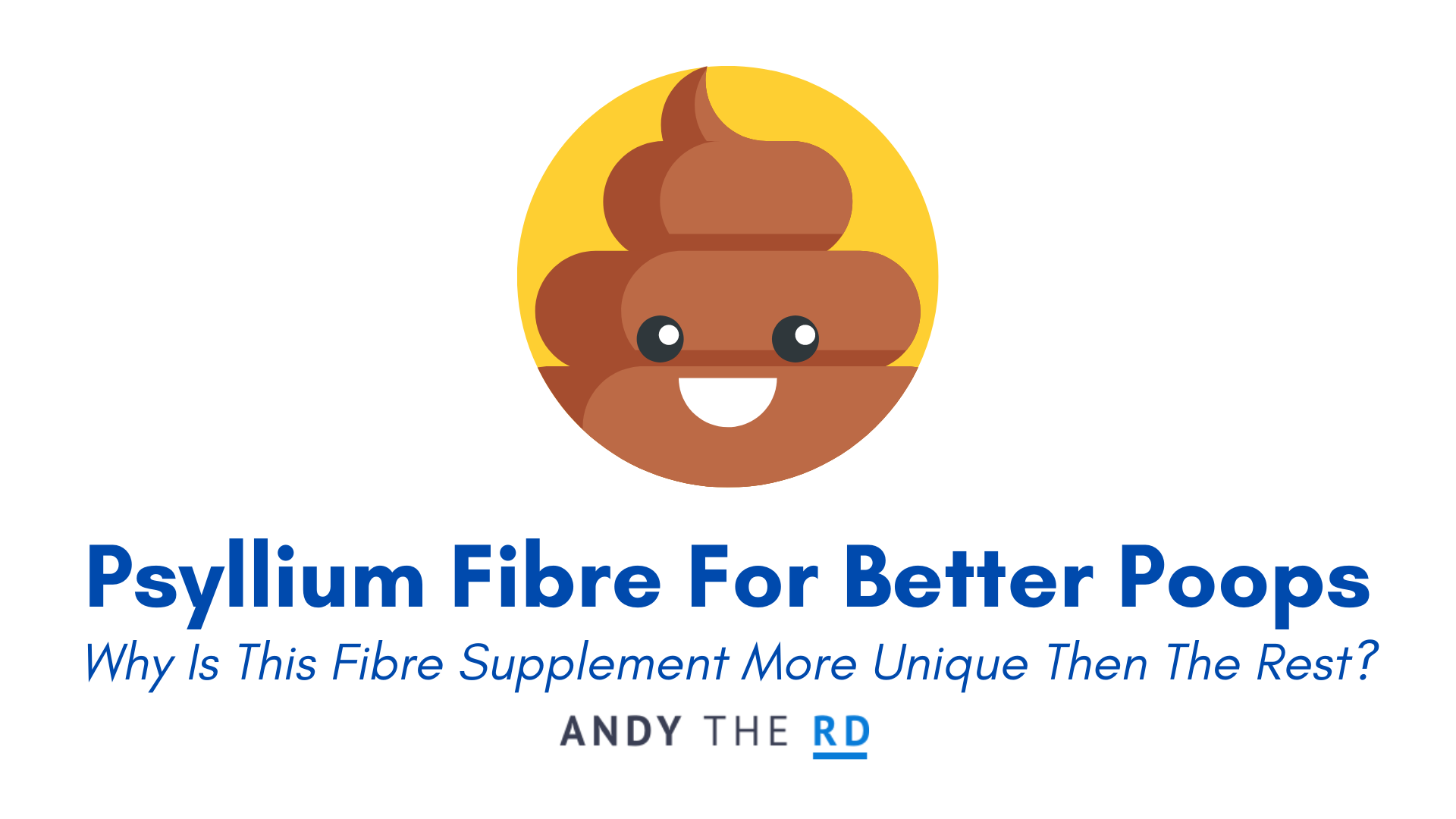Let me start by saying the goal of today’s article is not to explicitly or broadly recommend the use of psyllium fibre, rather it is to explore the scientific reasons why this fibre supplement above all others is the most useful for improving your bowel habits.
Whether you personally choose to use it, and in what capacity, is more so a decision to be made with your healthcare provider ( which could be me!)
I also urge you guys to read my article on How Many Times Most People Poop A Day in order to get a better sense of what constitutes healthy bowel habits for the average person.
I will also note that psyllium fibre is multi-talented, and also useful when it comes to the contributing to the management of both blood sugar and blood cholesterol levels which could be favourable in a variety of contexts including PCOS, pre/type 2 diabetes and more.
Okay, back to talking crap.
What Makes Psyllium Unique?
Psyllium fibre is a form of isolated plant fibre from the Plantago Ovata species that has long been sold in various capsule/powder forms owing to the strong body of evidence pertaining to its health benefits.
Psyllium has a combination of physiological characteristics which make it distinct from other types of fibre and allow it to confer these numerous benefits.
#1 Solubility In Water
The first and more common characteristic of psyllium fibre is that it is a soluble fibre, which essentially mean it easily mixes/dissolves in water. This ability to interact with water, as you will soon understand, is fundamental for the rest of its effect
#2 Gel-Forming Capacity
While all types of soluble fibre dissolve in water, only a sub-set interact with water in a gel-forming capacity. Essentially, psyllium is very good at attracting and holding on to water which improves bowel movements because it makes them both softer & bulkier and thus easier to move through the digestive tract becoming significantly easier to pass.
Even a small increase in the water content of poops can have a massive effect on consistency and ease of passing.
Depending on contextual factors, this could be true both in constipation [ water softens the hard stools] and diarrhea [ psyllium attracts the excess water, allowing the poo to form better and be less loose].
It is this gel-forming and absorptive effect which also, for different reasons, contributes to psyllium’s blood sugar and cholesterol lowering capacity.
Other types of fibre, such as beta-glucan found in supplements & oatmeal, also share these characteristics.
But there’s one very important difference because psyllium is….
#3 Not Fermented [In The Large Intestine]
This is the ultimate attribute that makes psyllium fibre better than the rest.
While many types of fibre are soluble and gel-forming, psyllium is additionally unique because it is not fermented in the large intestine.
In other words, it is not broken down by gut bacteria and thus not stripped of its water holding potential as it moves through the digestive tract – this characteristic is fundamental to its superiority in improving bowel regularity and softness where other fibre types may fall short.
It is perhaps no surprise then that the Canadian Association of Gastroenterology Clinical Practice Guideline for the Management of Irritable Bowel Syndrome (IBS) recommend the use of psyllium fibre as a means to improve the symptoms of IBS.
Hope you enjoyed all this crap,
Andy De Santis RD MPH
Blood Sugar & Cholesterol Benefits
Need help lowering blood sugar/cholesterol levels or improving insulin resistance?
These are some of my areas of practice specialty, and while psyllium is a very effective supplement for these purposes, but not as effective as working with me 1-on-1.
Reach out today to learn more about how I can help.


Psyllium helps with blood sugar because it has a slowing effect on digestion which allows a healthier glycemic response to meals.



